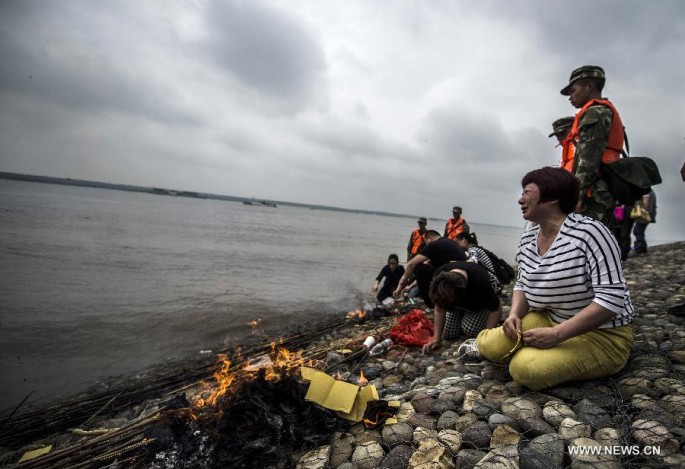As families of those who perished in the Eastern Star disaster grieve in their own ways, rescuers bow their heads in silence to honor the lives the Yangtze River claimed. For three minutes, ships sounded their horns in remembrance on June 7, Sunday, the seventh day since the disaster.
It's a customary and widely observed practice among the Chinese to mourn their dead on the seventh day.
Yang Chuantang, China's Transport Minister, led the ceremony on a huge crane vessel used to pull the ship up. All he said was, "Please observe silence."
Numerous workers and government officials paid their respects as boats sounded their horns in unison. Guan Dong, one of the rescue divers, shared, "We are all here with families of victims to go through the pain of losing their loved ones with them."
Families, on the other hand, prayed for their deceased or missing loved ones on the riverbank, while some opted to stay in their hotels in Jianli. Among those who went to the riverbank was Guan Yuan, who held a picture of her parents.
"I wish this was a nightmare, but nothing happens when I wake up."
One of the survivors, Wu Jianqiang, lost his wife to the accident.
"I know you will not come back, but I really hoped I could see you one last time," he said.
June 8 marks the eighth day since the Eastern Star cruise ship capsized in the waters of the Yangtze River. Eight days of search and rescue operations have resulted in a dramatic increase in the death toll, which now numbers at 431.
Eleven passengers remain missing and unaccounted for.
Due to a freak tornado that ravaged the Yangtze's Jianli section in Hubei Province, the Eastern Star overturned with 456 people on board. Only 14 people survived, including the ship's captain and chief engineer. Although the accident was attributed to a freak storm, the captain and chief engineer are placed under police custody.
As of Monday, June 8, DNA tests are still being carried out to identify retrieved bodies.



























